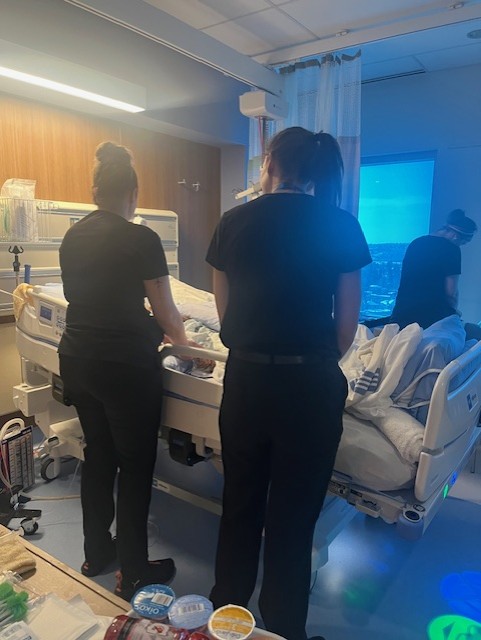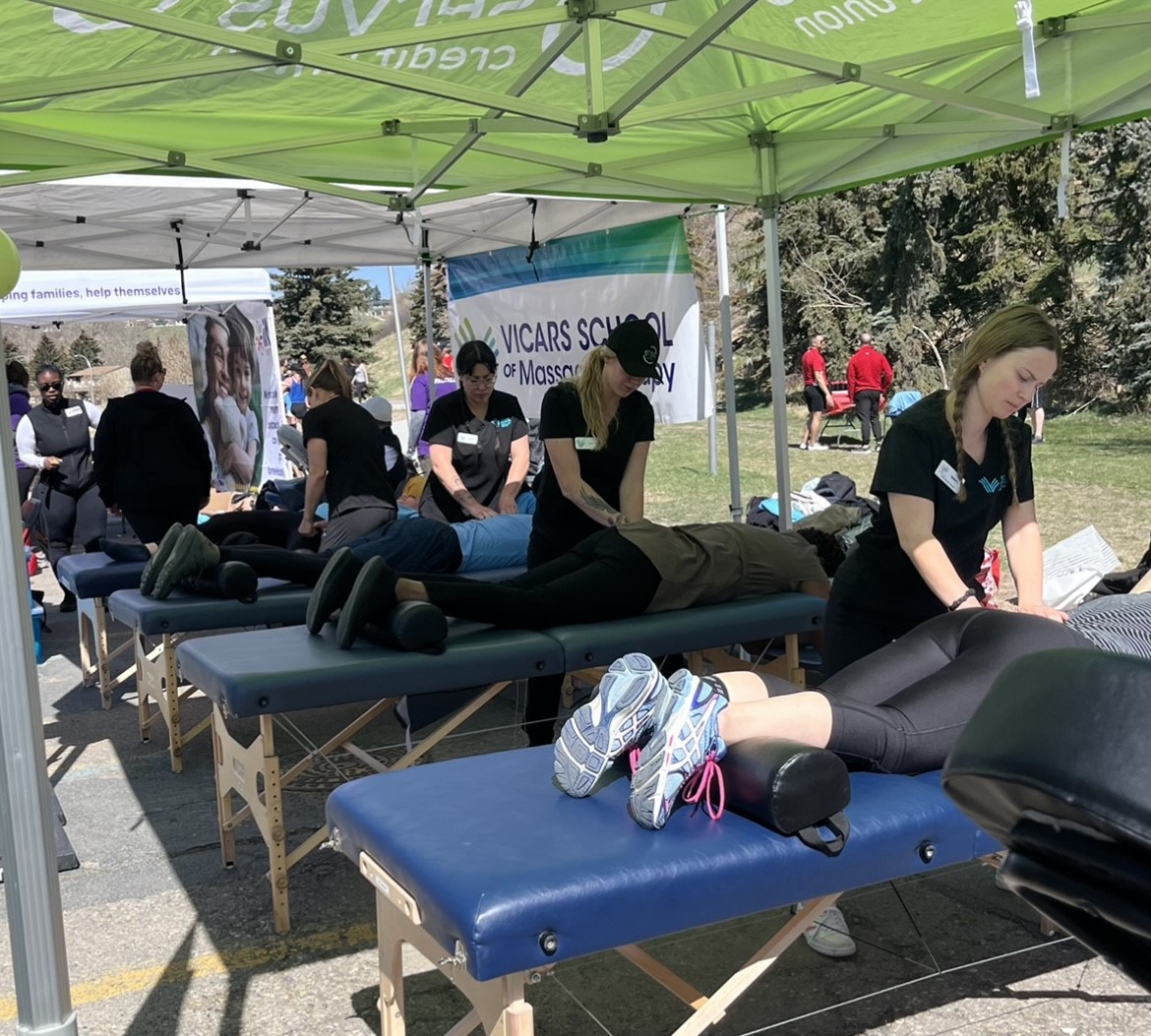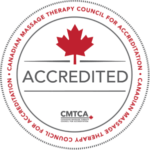Massage is a hands-on career and, of course, you need plenty of hands-on training. But learning to be an effective therapist takes more than manual skills. Much more!
An effective massage therapist knows the anatomy and physiology of the human body exceptionally well. They know about symptoms of pathology and what massage therapy can (and can’t) do to help. They understand scope of practice, contraindications, professional ethics, and how to look after the business side of their career.
These are the parts of our program that are delivered online, using our exclusive materials and videos as well as curated resources from our chosen textbook publishers. This part of the program is delivered over Moodle, the robust online learning platform we use.
At Vicars school, our highly successful and nationally accredited curriculum is a blended learning program; it’s a combination of in-class instruction and interactive online learning.
Blended learning offers flexibility and can be more affordable than a conventional college program that may require you to be on campus 9-to-5, five days a week. The work you do at home is a combination of assignments, readings, projects, and online quizzes, all accessed through Moodle. You have detailed checklists with required readings and assignments that must be completed for their next class.
All this helps, but working from home can be challenging, especially if all your previous education has been in the classroom. If you’re not familiar with Moodle or haven’t used an online learning platform before, we have an orientation guide to help you navigate the system and our staff and faculty are available for further technical support when it’s needed.
We asked our curriculum experts and instructors for their advice on how to stay motivated and make the best use of your time. Here are their tips:
1. Choose a subject you care about
Their first piece of advice was fundamental: in any adult education, do your career research first. When you choose a course or program that you’re passionate about, learning is less of a chore. You won’t have to force yourself to log in, and even the toughest assignments won’t get you down.
2. Make a schedule (and stick to it!)
Beware of procrastination. “I’ll do it tomorrow” will leave you with a pile of assignments that gets more difficult to tackle each day. The best way to avoid that is to create a study schedule and stick to it. You will want to block off times that you will dedicate to working on specific tasks. The Vicars coursework is designed to fit within 15-20 hours of study each week. Breaking your assignments down into smaller chunks will make everything more manageable and less stressful.
For example, within each subject of our online curriculum, the reading directions are listed with their corresponding questions or assignments, to make it easy to follow along every week. Moodle includes a calendar to help you keep track of your coursework and a completion tracking tool to help ensure that you haven’t missed anything.
3. Use Moodle’s opportunities to stay in touch
Just because you’re not in class, doesn’t mean you are on your own. Your fellow students are an incredible asset both academically and emotionally. You will of course collaborate in class and in clinic, but you can also stay connected with your classmates and instructors when you’re not on campus by using Moodle.
You can use Moodle to send direct messages to both classmates and instructors. There are also general, school-wide forums to discuss challenging topics, make comments, and ask questions of instructors and fellow students. Your classroom forum, open to students in your own class, can act as an extension of your on-campus discussions. If you have a question, other students are likely wondering the same thing and will benefit from the answer. Specific questions about Anatomy & Physiology and Pathology go to the dedicated science instructor for your campus.
4. Start early if you can
As soon as you’re accepted into the program and complete your registration, you will have full access to Moodle, and can begin the two core science courses that are required: Anatomy & Physiology, and Pathology. All your resources and assignments are available online, and you will have access to the general forums and to instructor and technical support as needed. There is no charge for this opportunity to get started early, and many advantages.
If you can start a few weeks or even a few months before your on-campus class begins, you can get used to the Moodle environment and start learning. You can work through the materials, submit homework, and challenge the quizzes. The work you put in ahead of time will take some of the pressure off as you get used to the responsibilities of first year.





